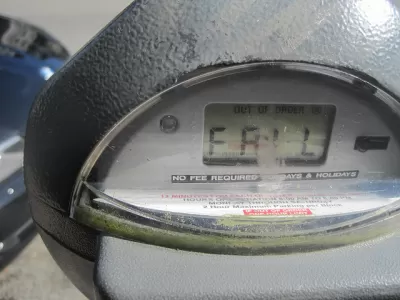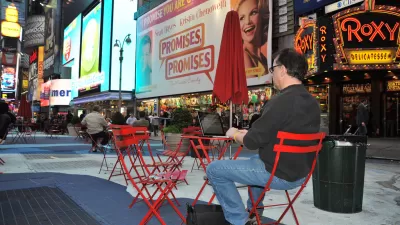Most "smart city" projects to-date are somewhat isolated and are not part of a more comprehensive network.

"Smart Cities" are a catchall phrase for using technology to make cities more resilient, responsive, and financially solvent. A recent piece in Scientific American notes that it doesn't always work out that way, at least not yet, as efforts often fail to account for local, government and socioeconomic conditions.
A smart lighting system here and a traffic signal timing system there are isolated, not part of a comprehensive, integrative system. Kendra Smith writes:
"The current reality of smart cities is that there aren’t any. At the end of the day, most so-called smart cities are just cities with a few or several standout smart projects."
The article asks important questions like how a smart city affects social justice, what is its true cost, and who decides what the city really needs before any switches get flipped?
FULL STORY: The Inconvenient Truth about Smart Cities

Planetizen Federal Action Tracker
A weekly monitor of how Trump’s orders and actions are impacting planners and planning in America.

San Francisco's School District Spent $105M To Build Affordable Housing for Teachers — And That's Just the Beginning
SFUSD joins a growing list of school districts using their land holdings to address housing affordability challenges faced by their own employees.

The Tiny, Adorable $7,000 Car Turning Japan Onto EVs
The single seat Mibot charges from a regular plug as quickly as an iPad, and is about half the price of an average EV.

Seattle's Plan for Adopting Driverless Cars
Equity, safety, accessibility and affordability are front of mind as the city prepares for robotaxis and other autonomous vehicles.

As Trump Phases Out FEMA, Is It Time to Flee the Floodplains?
With less federal funding available for disaster relief efforts, the need to relocate at-risk communities is more urgent than ever.

With Protected Lanes, 460% More People Commute by Bike
For those needing more ammo, more data proving what we already knew is here.
Urban Design for Planners 1: Software Tools
This six-course series explores essential urban design concepts using open source software and equips planners with the tools they need to participate fully in the urban design process.
Planning for Universal Design
Learn the tools for implementing Universal Design in planning regulations.
Smith Gee Studio
City of Charlotte
City of Camden Redevelopment Agency
City of Astoria
Transportation Research & Education Center (TREC) at Portland State University
US High Speed Rail Association
City of Camden Redevelopment Agency
Municipality of Princeton (NJ)





























